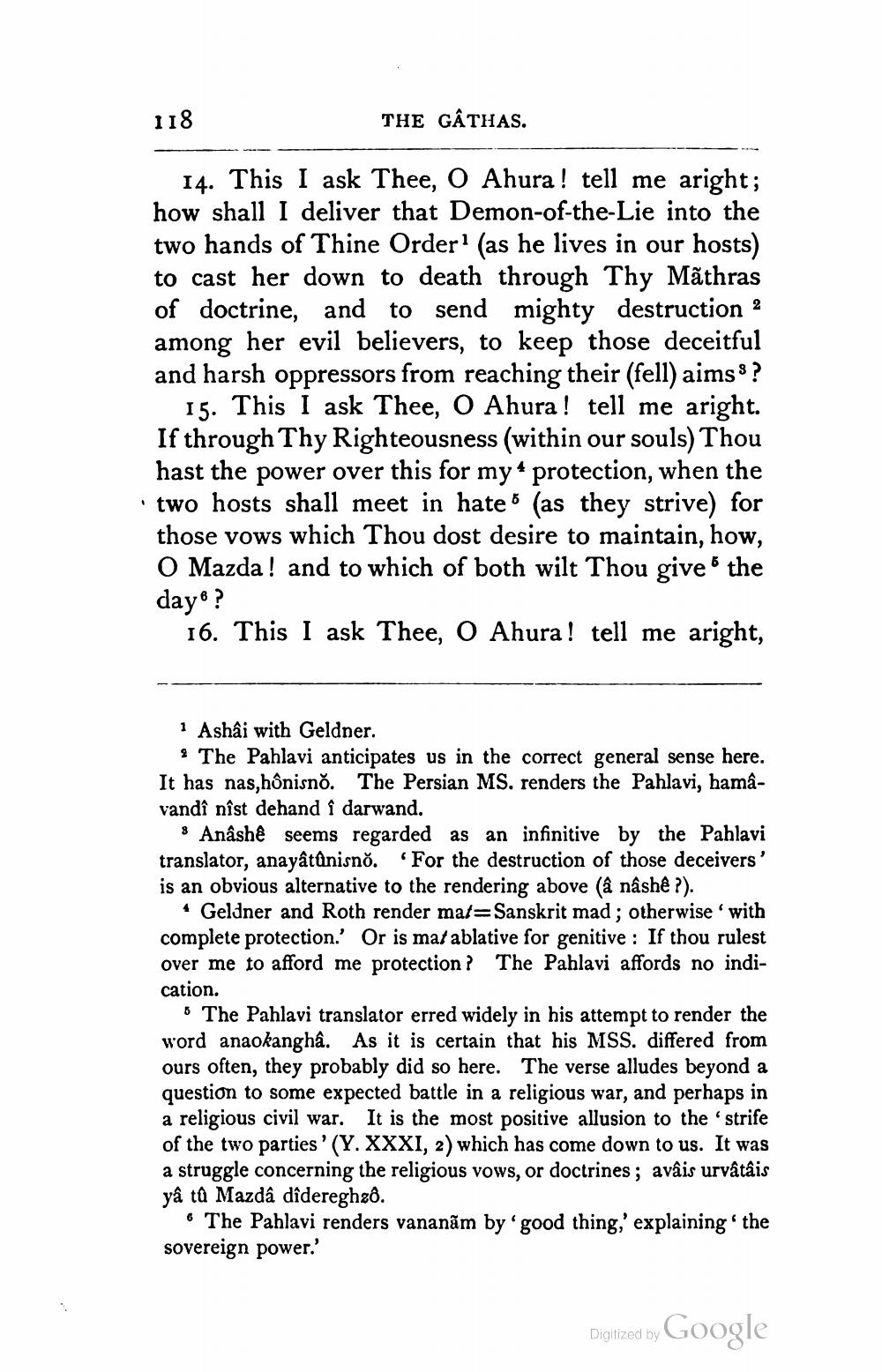________________
118
THE GÂTHAS.
14. This I ask Thee, O Ahura! tell me aright; how shall I deliver that Demon-of-the-Lie into the two hands of Thine Order (as he lives in our hosts) to cast her down to death through Thy Mãthras of doctrine, and to send mighty destruction 2 among her evil believers, to keep those deceitful and harsh oppressors from reaching their (fell) aims 3 ?
15. This I ask Thee, O Ahura! tell me aright. If through Thy Righteousness (within our souls) Thou hast the power over this for my - protection, when the two hosts shall meet in hate 5 (as they strive) for those vows which Thou dost desire to maintain, how, O Mazda! and to which of both wilt Thou give the day?
16. This I ask Thee, O Ahura! tell me aright,
1 Ashâi with Geldner.
· The Pahlavi anticipates us in the correct general sense here. It has nas,hônisno. The Persian MS. renders the Pahlavi, hamavandî nîst dehand i darwand.
8 Anâshe seems regarded as an infinitive by the Pahlavi translator, anayâtûnisno. For the destruction of those deceivers' is an obvious alternative to the rendering above (â nâshế ?).
• Geldner and Roth render mat=Sanskrit mad; otherwise with complete protection.' Or is mat ablative for genitive : If thou rulest over me to afford me protection? The Pahlavi affords no indication.
o The Pahlavi translator erred widely in his attempt to render the word anaokangha. As it is certain that his MSS. differed from ours often, they probably did so here. The verse alludes beyond a question to some expected battle in a religious war, and perhaps in a religious civil war. It is the most positive allusion to the strife of the two parties' (Y. XXXI, 2) which has come down to us. It was a struggle concerning the religious vows, or doctrines; avâis urvâtais yâ tů Mazda dîdereghz8.
o The Pahlavi renders vananām by 'good thing,' explaining the sovereign power.
Digitized by
Digitized by Google




